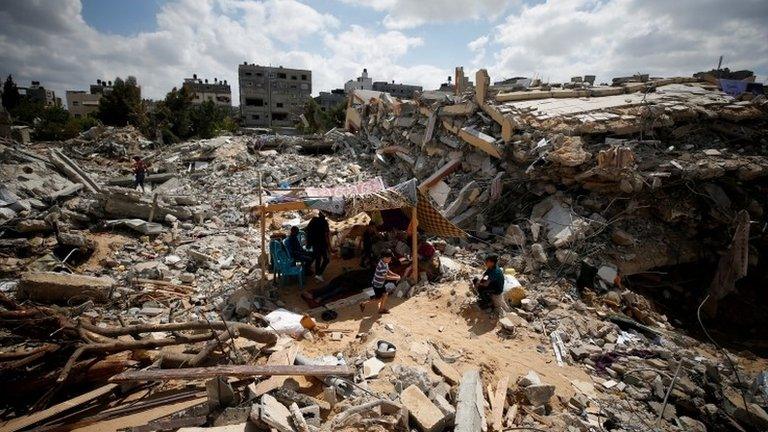Palestinian groups branded terrorists by Israel say they are being silenced
- Published
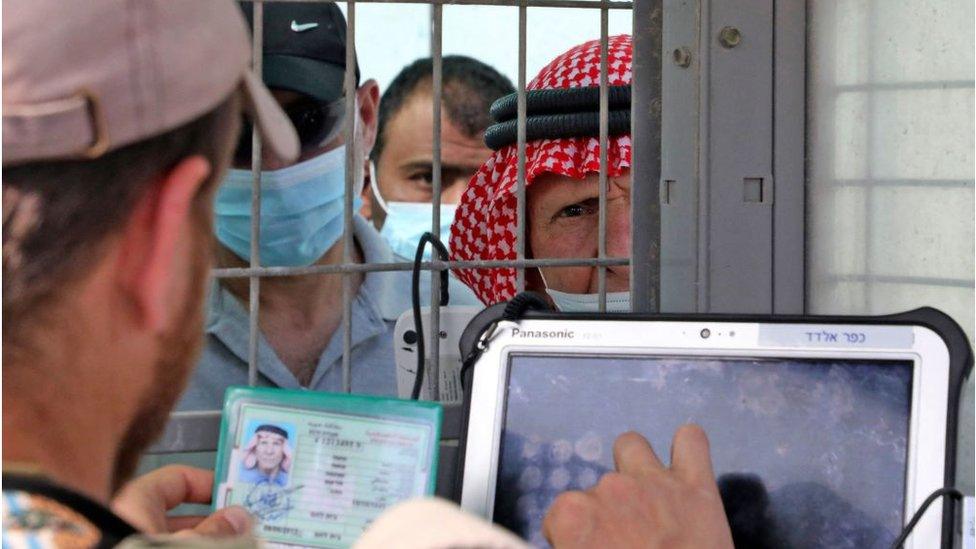
The six groups monitor human rights violations in the West Bank and Gaza
The leaders of six Palestinian civil society organisations branded terrorist groups by Israel say the move will harm human rights unless it is reversed.
Last week Israel declared that the groups were a front for a militant faction which has committed deadly attacks against it since the 1960s.
Israeli envoys with access to secret intelligence were due in Washington this week to explain the decision.
It shocked international donors and divided Israel's own ruling coalition.
The six groups identified were:
al-Haq
Addameer
Defence for Children International - Palestine
Bisan Center for Research and Development
Union of Agricultural Work Committees
Union of Palestinian Women's Committees
Israeli defence minister Benny Gantz accused the groups - which all receive foreign aid - of diverting funds to the Popular Front for the Liberation of Palestine (PFLP), a charge they strongly reject.
The PFLP, a small, left-wing group that does not recognise the State of Israel, carried out a number of armed attacks and aircraft hijackings in the 1960s and '70s. It was also behind several suicide attacks during the second Palestinian intifada (uprising) in the early 2000s.
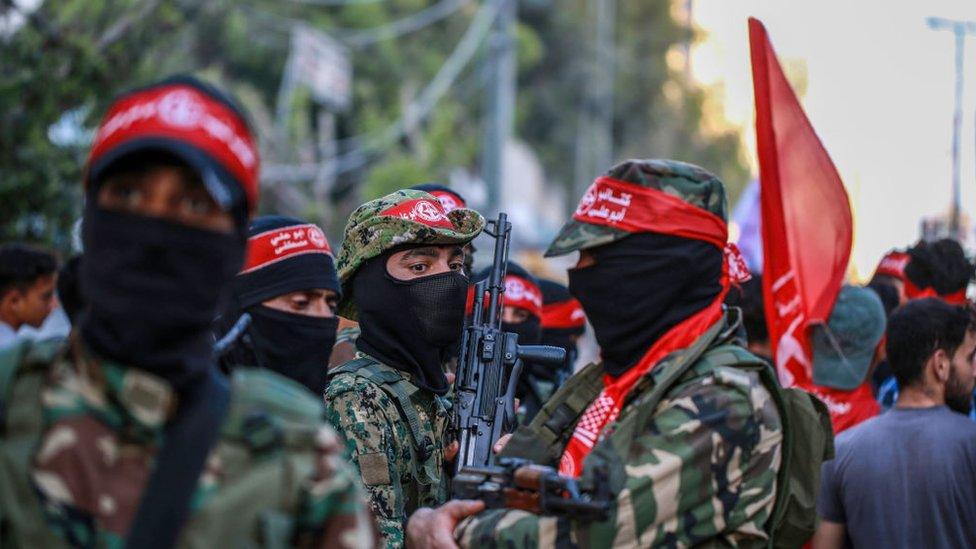
Israel says the groups are linked to the militant PFLP
"This is a ridiculous narrative, a ridiculous accusation," said al-Haq's director, Shawan Jabarin, suggesting that Israel had failed to silence rights groups challenging its occupation of Palestinian Territories through other means.
"I think it is the last bullet in their hands and this is a political bullet because it has no legal basis and no security basis. I challenge them to prove what they said," he added.
Al-Haq is the most well-established Palestinian human rights group, which routinely highlights violations by Israel, the Palestinian Authority (PA) in the Israeli-occupied West Bank, and Hamas, the Palestinian Islamist group which controls Gaza.
The leaders of the groups spoke on Friday at an online event organised by Human Rights Watch, the Carter Center and others.
"They are trying to illegalise us to make the international community fear communicating with us," said Sahar Francis, director of Addameer which promotes the rights of Palestinian prisoners in Israeli prisons, adding that work with Israeli NGOs and individuals would be most affected.
With the activities of the groups now effectively outlawed by Israel, in principle their offices can be closed, their assets seized and their staff arrested.
The US State Department said that it had not been told in advance about the terrorist designation and that it would ask Israel to explain its reasoning.
On Tuesday, US spokesman Ned Price said: "We believe that respect for human rights, fundamental freedoms, and a strong independent civil society are critically important to democracy," in what was interpreted by some as a rebuke.
The European Union said it took the Israeli move "very seriously" and would seek further details from the Israeli authorities, in a statement on Thursday.
The EU exercises "maximum diligence" to avoid financing or supporting terrorist groups, the statement read, noting that past allegations by Israel that Palestinian civil society groups were misusing EU funds "have not been substantiated."
The United Nations, Israeli human rights groups and also international rights groups have strongly condemned the decision by the Israeli Ministry of Defence.
The PA has denounced it as a "grave violation of international law."
Despite the fierce criticism, Mr Gantz and senior security officials have not wavered. One official speaking to Israeli news site Walla said there was "ironclad" intelligence gathered about the organisations, including "unequivocal evidence including videos, photos, receipts for money transfers, and more" proving direct links to the PFLP.
However, the defence minister has continued to come under fire from within Israel's government - a fragile eight-party alliance that relies on the support of leftist politicians.
Health minister Nitzan Horowitz, who heads dovish Meretz, cautioned that as an occupying military power Israel needed to be "very careful in imposing sanctions on Palestinian civil organisations because there are political, diplomatic and, more importantly, human rights consequences".
Labour leader and transport minister Merav Michaeli said the way the announcement was made "caused Israel great damage with our greatest and most important friends".

You may also be interested in:
BBC Middle East Correspondent, Yolande Knell : "Neither side is giving up their claims to this rocky hill"
- Published13 October 2023
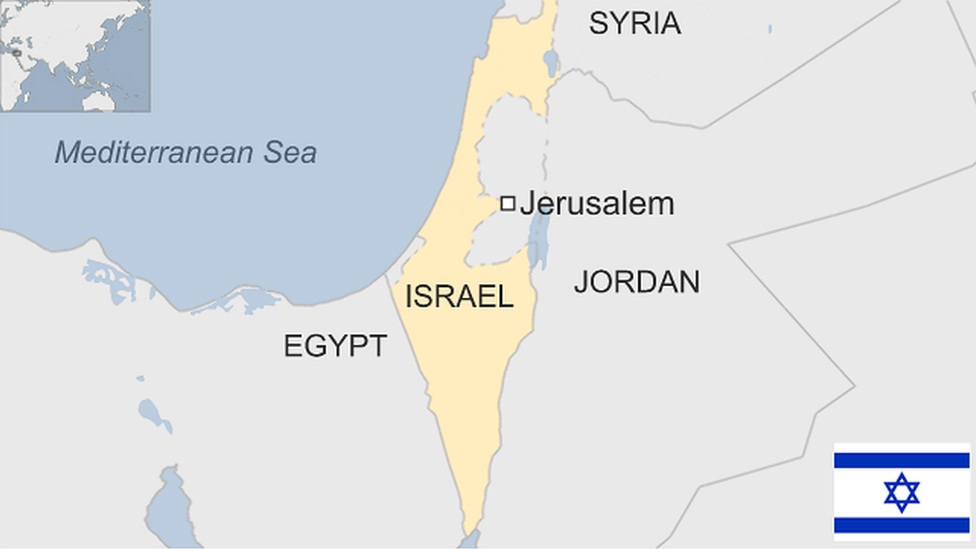
- Published25 November 2019
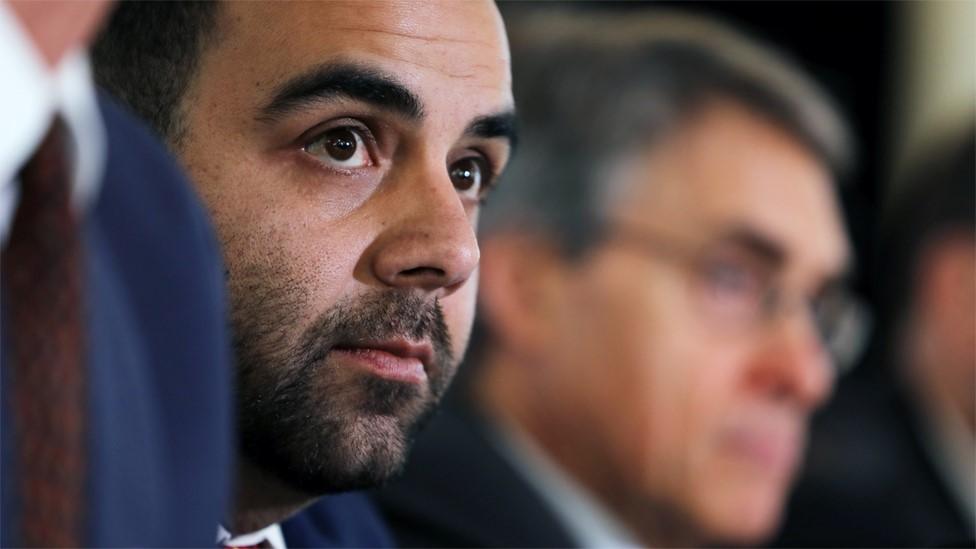
- Published29 July 2021
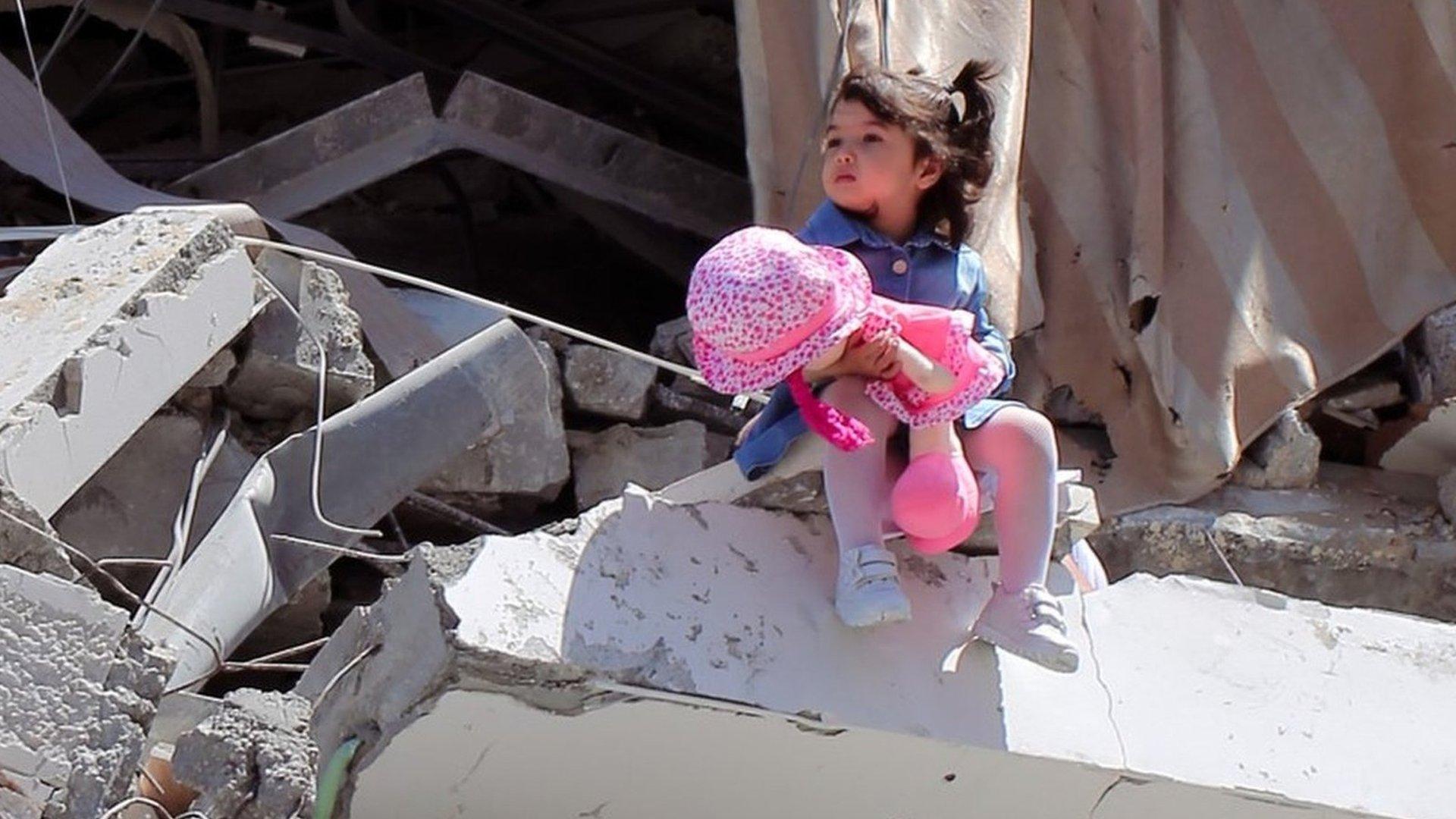
- Published26 May 2021
